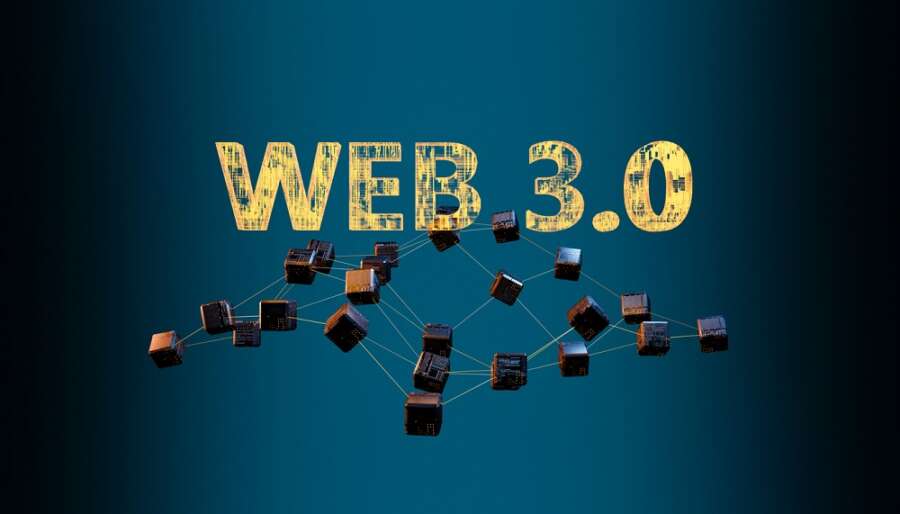
Alan Vey, leading tech entrepreneur and blockchain expert
The Web is the avenue through which most businesses scale operations and innovate. Now that Web3 is upon us, it is crucial for businesses to consider its potential in creating new revenue opportunities and enhancing operational efficiencies. Already, the most forward-looking CEOs are preparing to incorporate Web3 applications into their operations. 53% of C-level officers identified blockchain as a crucial part of their organisational infrastructure in 2020 while 60% of CIOs expect to adopt blockchain technologies in the next three years.
If you are new to the concept of Web3, then it’s important to first define it. Web1 was ‘READ’, allowing users to access data that was hosted on the network. The second phase, Web2, added ‘WRITE’, which enabled user-generated content to be shared via apps like Facebook, Instagram, and Twitter. The third iteration, Web3, adds ‘OWN’, offering users the ability to truly own in a digital context and not just have a digital representation of physical ownership.
What can Web3 do for business?
I’m guessing that what you are really interested in knowing is what Web3 and the technologies being developed within its paradigm can bring to businesses.
Right now, the metaverse is the biggest talking point when it comes to Web3’s potential. Such is the hype surrounding metaverse, which can vaguely be described as virtual reality environments where users can interact much like in Speilberg’s ‘Ready Player One’ adaptation, that Facebook not-so-coincidentally rebranded itself as Meta. The social network giant has already invested $10bn into metaverse projects.
But we are yet to experience the disruptive transformation that the metaverse has been touted to deliver. Meanwhile, there are other Web3 case studies that have proven immensely successful – such as Decentralised Autonomous Organisations (DAOs). DAOs encompass what a Web3 business would look like. What separates DAOs from traditional corporate structures is that, as its name suggests, they are decentralised and completely autonomous.
This novel way of running an organisation has proven to work well. Take, for example, the Bored Ape Yacht Club (BAYC). Massively popular among crypto aficionados, BAYC is a set of 10,000 limited NFTs that resemble images of commercial apes, each with different traits. BAYC has achieved success both in the crypto and in the mainstream, generating a total trading volume of $1.6bn so far. Yuga Labs, the company behind BAYC, is valued at $4bn.
Traditional companies can learn a lot from BAYC’s success. DAOs are set up in a way to remove complete control from a few select people in an organisation, which ismmensely empowering to those who contribute to the DAO as it gives them a firm stake in the organisation, fostering true loyalty within an engaged community.
How can the business world engage with NFTs?
What exactly are NFTs and why have they become the ‘killer application’ for blockchain technology?
An exciting byproduct of blockchain technology, NFTs enable brands to create value through scarcity and reward loyal customers.
Big brands like Nike have already discovered much success with NFTs with the sports conglomerate having made $185m from the sales of its NFT collectables from the additional royalties This is an effective showcase of how blockchain technology can be used to create a strong sense of community between brands and their followers.
Decentralisation can be a powerful business transformation
There are more ways in which Web3 technologies can be applied by businesses – beyond simply NFTs. Blockchain technology is a general-purpose tool with many functionalities and a strong facilitator of creating digital scarcity or providing secure value exchange.
Blockchain can solve a multitude of pain points. With applications ranging from improving audit traits for things like cargo tracking for the aviation industry to securing ticketing in the events industry, blockchain enables organisations across a number of sectors to become decentralised.
But how would businesses benefit from decentralisation? While not every business will be naturally suited to adopting a decentralised model, for those that can implement it, it will allow them to share the functionality of the business across multiple points. For example, rather than having single data storage in one place, they can invest in multiple data storage points, reducing overreliance on a single data centre, thereby improving efficiency.
But it doesn’t have to be all or nothing when it comes to adopting blockchain. For example, businesses can adopt ‘permissioned’ instances of networks – meaning they benefit from the speed, security and interoperability of a blockchain while maintaining full control over all transaction activity, and actually enhancing its anti-money laundering capabilities.
Ignore Web3 at your peril
Web3 technology is developing at pace.
It is only a matter of time before businesses will be able to purchase ‘blockspace’ – which is essentially the ability to rent flexible, interoperable and secure space on the blockchain that is specifically tailored to their shifting needs for security, availability, and latency.
Businesses that don’t want to be left behind when the era of Web3 fully comes into its own, should already be exploring how blockchain technology could improve their operations. A smart business invests in its future and the future is most definitely Web3.


